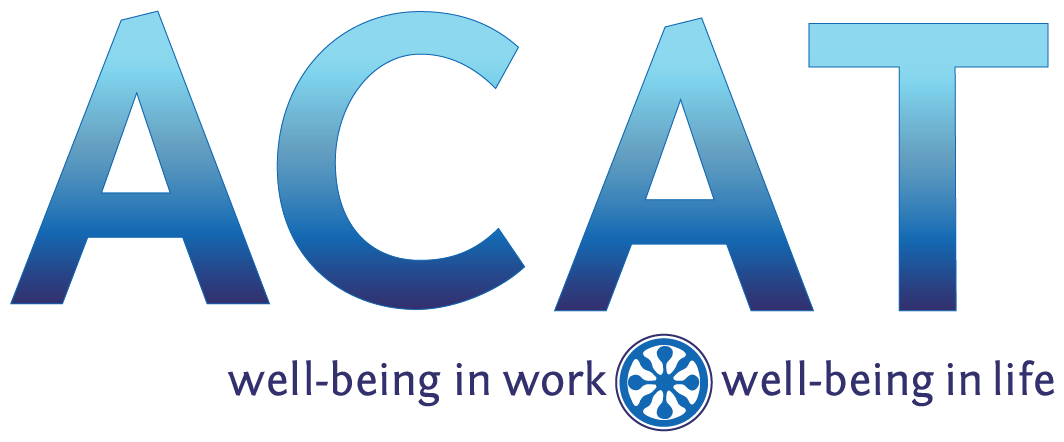 by Brooke Lieb
This summer, I decided to check some items off my bucket list while I am healthy, happy and had time. I spent Tuesday afternoons in "Acting for the Camera" in the afternoons, and in a Stand Up Comedy class in the evenings. Although I have a Bachelor's Degree in Musical Theater Performance, I haven't worked on a text or studied acting technique in over 25 years. I have never done Stand Up. The first point at which my AT skills kicked in was the act of registering. I tend to think inhibition is about overtly stopping from impulsive and habitual behavior. In this case, inhibition helped me override the habit of keeping in my comfort zone, to do something new, different and unknown.
by Brooke Lieb
This summer, I decided to check some items off my bucket list while I am healthy, happy and had time. I spent Tuesday afternoons in "Acting for the Camera" in the afternoons, and in a Stand Up Comedy class in the evenings. Although I have a Bachelor's Degree in Musical Theater Performance, I haven't worked on a text or studied acting technique in over 25 years. I have never done Stand Up. The first point at which my AT skills kicked in was the act of registering. I tend to think inhibition is about overtly stopping from impulsive and habitual behavior. In this case, inhibition helped me override the habit of keeping in my comfort zone, to do something new, different and unknown.
Tragedy
I had a chance to observe the on-camera acting class before I registered. I noticed my first impulse as I watched the teacher, Karen Ludwig, work with her students, was to run as far in the opposite direction from this class as I could. As I thought about being in the class, I found a number of rational reasons not to register. I also had the chance to observe my thinking from a new vantage point and understood that my love of acting is the reason I am afraid. I care about learning and doing well. The paradox is that doing well requires me to take my attention off the result so I am present, focused, specific and connected to the reality of the circumstances of the scene. I have to do what I am doing, in as heightened a state of reality as possible.
We have had 9 classes so far, and I've seen my work played back on the camera 4 times. I also have the chance to watch my classmates, working live and on camera. It's much easier for me to hear and see what the other actors are doing well and need to work on. I have a bit of a blind spot watching my own work, so my first order of business is just to be able to see and hear my own work on playback. I haven't seen anything in my performance that horrifies me or makes me go running from the room, even if I'm not satisfied with the reality.
The work I'm doing in class reminds me of my early Alexander lessons. I feel like I have little or no experience, I don't know what I'm doing, and this will be a long and deep process. My relationship to studying acting is much more loaded than my relationship to studying Alexander Technique. I am having to deal with a much stronger stimulus to end gain, i.e., produce a successful result. I feel like a rank beginner and I have to learn how to balance my passion to learn; the vulnerability of being watched and judged; and the need to give myself time and space to explore, be curious, make mistakes, and play.
I have decided to register for the class and continue this upcoming semester. It is so challenging and I am so out of my comfort zone, that I know I need more time and opportunity to practice the craft.
Comedy
I have always been curious about stand up comedy, and comedy improv/sketch comedy. I love to tell jokes, and friends and family have always told me I have a good sense of humor. I didn't really consider that in stand up, it isn't only a matter of one's ability to deliver the punchline, you must be a writer. I have done a lot of improv (where I always have a scene partner and someone to play off) over the years. I had never done stand up before. I admired brilliant stand up comedians over the years, and their creativity and ability to craft stories out of life's foibles.
I didn't really think it through when I signed up, which was a good thing, because I might not have done it otherwise. It ended up being easier to write my material than I expected. I was fully prepared to find out I had no skill in this area. Unlike acting, with which I have a long history of failure and success, I had no attachment to being any good at stand up. Also, knowing that I wasn't going to be forced to perform at the graduation show made it easier for me to give it a go.
My Alexander tools seemed to be the most useful when it came to relating to the audience. During my 5-minute set, I started out focusing on remembering my script and not starting the next line until the laughs died down. (Yes, I managed to get plenty of laughs!) As I realized they were enjoying the material, I started slowing down mentally, talking to the audience and relating to them as I would in a real conversation. Pacing took care of itself, and I really enjoyed myself. One caveat: this was an invited audience of friends and family of everyone from our acting class, so they were pre-disposed to like us, support us and laugh at our jokes. I must attend some open mics to get a better sense of what it's like to connect (or not) with a roomful of strangers (many of whom are drinking.) I haven't encountered any hecklers, so that is uncharted territory.
All in all, the stand up comedy experience was easy, fun and fulfilled a curiosity I've had for a long time. My whole attitude about it was one of curiosity and play. The nerves I felt getting up to try out new material every week in class, and at performance, was attached to excitement, without much fear. It is a stark contrast to my acting class.
How can you apply Alexander Technique tools to your performance?
In addition to the more physically based tools of freeing your breath, slowing down, taking time to see, hear and choose how you might respond in the moment, you can work with your thinking and internal dialogue.
1. Get clear about your level of desire to be there, doing it, especially if you are particularly afraid or indifferent. Most of us understand the idea that we get performance jitters. Fear makes sense. Apathy doesn't make as much sense, but sometimes a strong desire can trigger apathy as a protective mechanism.
2. Ask yourself:
- Am I doing this because I want to, and I am invested?
- Am I doing this because I think I should; or have I internalized the voice of someone else telling me I should do this?
- Can I tolerate any discomfort long enough to get some experience and see if there is satisfaction or pleasure from this experience?
3. Talk to people who are doing what you want to do. Ask them about what kinds of fears, doubts, experiences they have had. Ask them how long it took for them to feel better, or get to a point that they knew they were going to show up and keep going. Talk to a number of people, and notice how varied their advice and stories can be. We all respond to desire and passion in different ways. Some performers seem fearless and outgoing, others seem crippled by doubt, others seem blasé and indifferent, like it's no big deal. Where do you fall on that spectrum?
[author] [author_image timthumb='on']http://www.acatnyc.org/main/wp-content/uploads/2014/01/Brooke1web.jpg[/author_image] [author_info]N. BROOKE LIEB (ACAT, '89) is the Director of ACAT's Teacher Certification Program. She has a Bachelor of Professional Studies in Musical Theater Performance from Empire State College, and maintains a private practice in New York on the Upper West Side, and in Pipersville, PA. Her clients include performing artists, people dealing with chronic and acute pain, and those living with scoliosis. Brooke will be performing another set Monday, September 22 at 7:30 - doors open at 7 at Caroline's Comedy, 1626 Broadway between 49 and 50 - call (212) 757-4100 to make reservations and mention you are coming to see Brooke - if you mention her name, your cover is only $5! www.brookelieb.com [/author_info] [/author]
